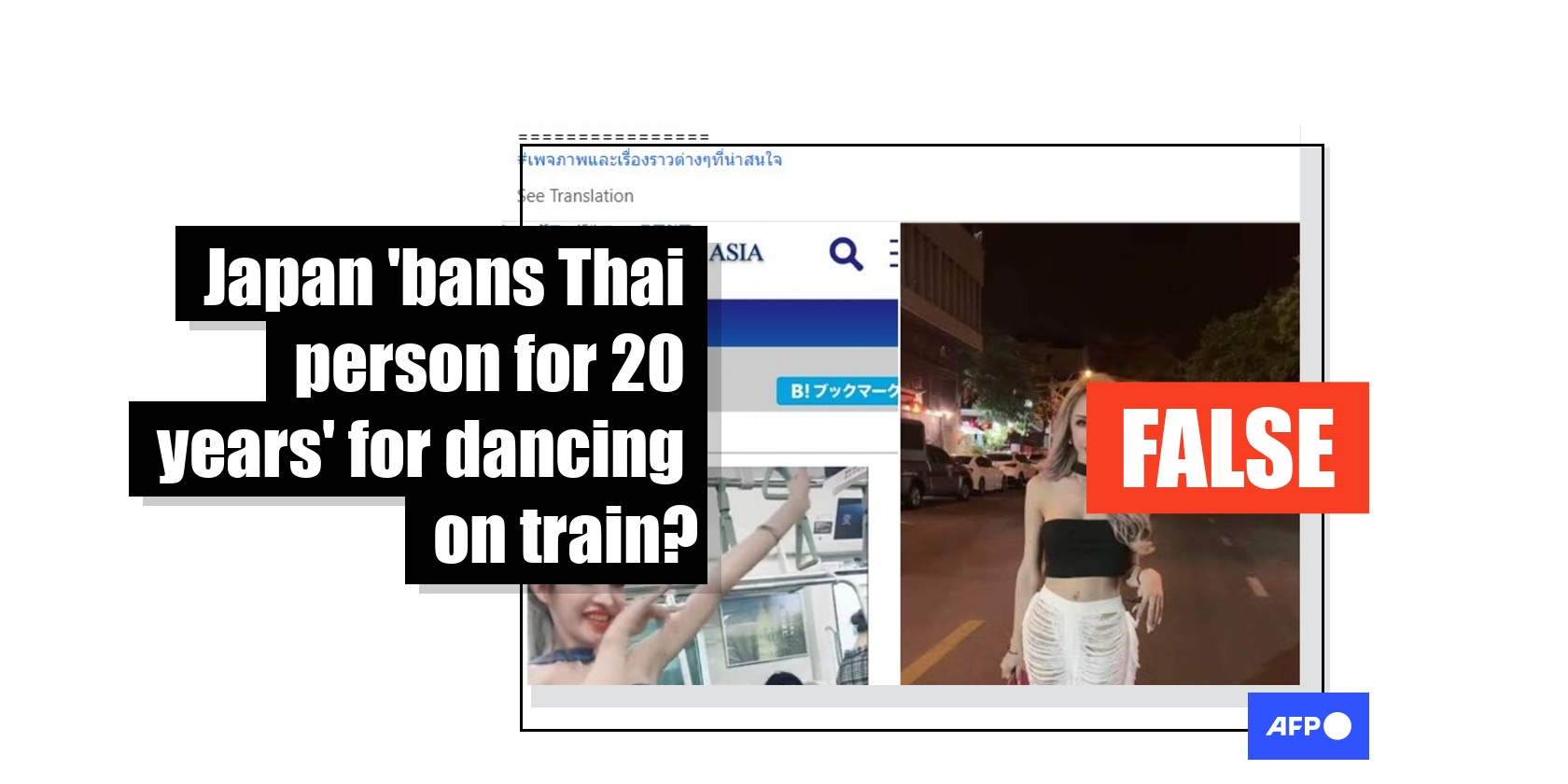
Posts falsely claim Japan banned Thai from entry for dancing on train
- This article is more than two years old.
- Published on August 24, 2023 at 10:13
- 2 min read
- By Panisa AEMOCHA, AFP Thailand, AFP Japan
"Mr. Wacharapol Pornsongnern, 32, male, has been banned from entering the country for 20 years by the Japanese government over allegations of #dancing_and_filming_on_trains. Credit: NHK," reads a Thai-language Facebook post shared on August 14.
NHK is a Japanese broadcaster.
The post, which has more than 3,000 shares, shows two images -- one of a screenshot from a website called "Global News Asia" and a photo of the TikTok user who was dancing on the train.
Thai media reported that a TikTok user's video of themselves dancing to loud music on a Japanese train had drawn widespread criticism from other Thais, who accused them of behaving inappropriately (archived links here and here).

Similar false claims were also shared on Facebook here, here, and here.
"This is Japan. Now you can brag that you have been to Japan and visit it again in the next 20 years," one Facebook user commented.
"Wait 20 years and travel again," another wrote.
However, Japanese immigration law does not include a 20-year ban as a penalty and Japanese authorities said it was not illegal to dance on a train.
Dancing not illegal
"Dancing in the train does not break any law in Japan, but it's considered rude and frowned upon," the Embassy of Japan in Thailand told AFP on August 16 (archived link).
It also said Japanese immigration laws did not include 20-year bans from entering the country.
AFP found no mention of such a ban as a penalty in Japan's Immigration Control and Refugee Recognition Law (archived link).
Meanwhile, the false posts claim the ban against the TikTok user was reported by Japan's NHK. However, keyword searches on the NHK website found no reports about the user being barred from Japan for 20 years (archived link).
The screenshot included in the false post instead shows a website called "Global News Asia" (archived link)
The website's report about the incident, titled "Video post of 'ecstatic Thai woman' who danced on a train in Japan flooded with criticism", does not mention any legal action taken against the TikTok user.
Below is screenshot comparison of the purported NHK report shared in the false post (left) and the original report from Global News Asia (right):

On August 14, the user accused of dancing on the train posted an apology to TikTok, saying they wanted to apologise to both Thais and Japanese and "the Japanese on the train who were filmed".
"My friends and I will now listen to any warning. We have repented," the user wrote.
The TikTok user did not mention being banned in the apology.
Copyright © AFP 2017-2026. Any commercial use of this content requires a subscription. Click here to find out more.
Is there content that you would like AFP to fact-check? Get in touch.
Contact us
